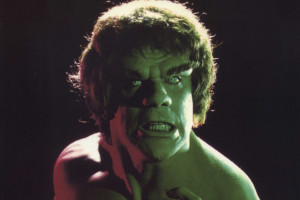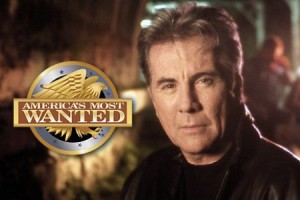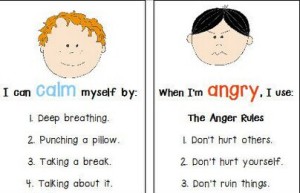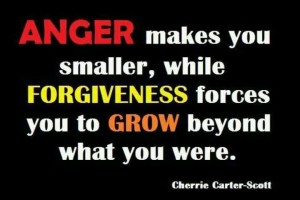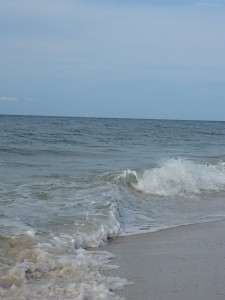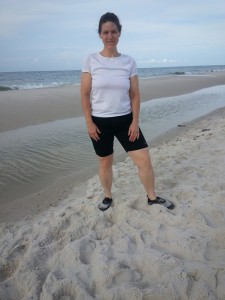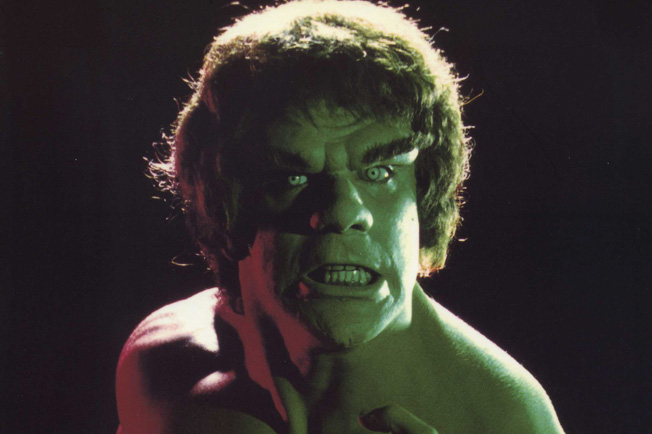
Anger is a powerful emotion. It can sweep us at the knees, punch us in the gut and rob our happiness. Anger seethes—like Clint Eastwood as Dirty Harry, “Do you feel lucky, punk?” It feels cool in the beginning, but give it fuel and anger starts to burn away at the enamel of our souls.
Anger in and of itself is not wrong. Every human being on the planet experiences anger. How we respond to anger, however, reveals our character. I drove behind a slow person in the fast lane this morning. I had the impulse to ram them with the back of my car. “That’ll teach ’em!” I thought. But then the rational side of my brain flared up, “People who drive slow in the fast lane are stupid and will never learn, regardless of how many times I ram them.” Feeding the rational side of your brain is important and definitely saves you money on car insurance.
Anger also gets things done. I am never as powerful as when I am offended. It’s how I began my journey to lose weight. I turned helplessness into the biggest punch in the face ever without ever raising my fists.
However, if not properly contained, anger can grow into rage. Rage is destructive and a total loss of control. For some reason, rage pulls the “I need ice cream” trigger for me. Some people punch walls, I eat ice cream. Go figure. Rage should be avoided at all costs. Just ask the Hulk. Smashing things will scare away your friends.
Unfortunately, anger can’t always be reasoned with. The way our broken world keeps spinning, we have a fresh opportunity for anger every day. The murder of innocent people. Child sexual slavery. And my personal “favorite”, justification of obesity. I happened across a video on FB yesterday that showed a young and already very large girl preparing to eat vast quantities of food for the sole purpose of becoming the world’s largest woman. She said her mother was completely supportive. That made me very angry. When anger won’t be reasoned with, it can metastasize into bitterness and, if left checked, despair. Maybe it’s my depressive nature, but I find it quite easy to sink into the swamp of despair. Whatever the case may be, our feelings are not avoidable. They are real. They are potent. And they shape the way we live our lives.
John Walsh is a classic example of taking justifiable anger and channeling it into doing good. He is my hero and an excellent role model for us all. His son was abducted and murdered and he took his anger and despair and became an advocate for victims everywhere.
This morning I found myself reeling from a situation involving a loved one. These situations feel like the worst! Love has the greatest capacity for pain, and pain fuels anger. Maybe that is why I found myself jogging around my neighborhood and punching the air at 6:00am. There was no shortage of tears and ice cream threats. Strangely enough, my brain began to blame people who had nothing to do with the situation. My anger felt like a strange kind of infection that bled into every area of my life. People who have nothing to do with the situation suddenly became demons that need to be exorcised. I found myself plotting hateful conversations with everyone from my neighbors to my co-workers. I even cursed cars that passed me on the street. Soon I realized that if I left my anger unchecked, I would turn into that horrible co-worker I was forced to endure several years ago.
She was so angry and bitter from a divorce that she vomited her bitterness onto everyone she came into contact with. No thank you! So I found an extra hill to stomp up—I’m a good stomper when I’m ticked off—and tried to burn off as much excess energy as I could. A tired angry person is much better than an energetic angry person.
Somewhere along the course of the day, after sharing my pain and anger with a few trusted friends, I realized there is nothing I could do to change my circumstances. I also realized that a decision needed to be made on how best to proceed. I could either continue to be angry—which is exhausting by the way—or I could somehow find a way to let go of my anger. The problem was, I honestly didn’t know how to let go of it. Finally, after several hours of careful thought and self-reflection, I came to see that if I truly love the person I am angry with, remaining angry with them will destroy the relationship. Sure, I could choose to destroy that relationship and walk away, but it wouldn’t be right in this case. Yes, I am frustrated with that person. Yes, I want them to make better choices. But when it comes down to it—when I think long and hard about my future—staying angry won’t solve our problems, it will only make them worse. Anger is real and valid, but it is, after all, only an emotion. Even if we simply agree to disagree, I have a distinct desire to move forward.
But agreeing to disagree didn’t really seem like enough. What I finally settled on was a distinct need to forgive that person. Forgiveness is hard. Sometimes it is the hardest thing we ever do. In this scenario, my loved one isn’t sorry, which makes it even more difficult, but it is what I decided to do nonetheless. When we forgive those who wound us, we are able to find peace. In the midst of this great storm of anger, today I learned that forgiveness is the best antidote. Forgiveness is sweet and beautiful. Forgiveness is letting go of anger even though we don’t excuse the behavior that caused the anger in the first place. Forgiveness is borne out of love though we do not always extend it to people we love. But I will say one thing, forgiveness has the capacity to set us free.
Today if you are angry, think about the reasons for your anger. Then try to find a way to forgive. Forgiveness is not condoning. Forgiveness is not even justifying. But forgiveness is loving, and I believe we are all better people when we force ourselves to love others as much—if not more—than we love ourselves. If anger is the knife that opens the wound, forgiveness is the needle and thread that closes it up again. And needles and thread can make amazing things!
